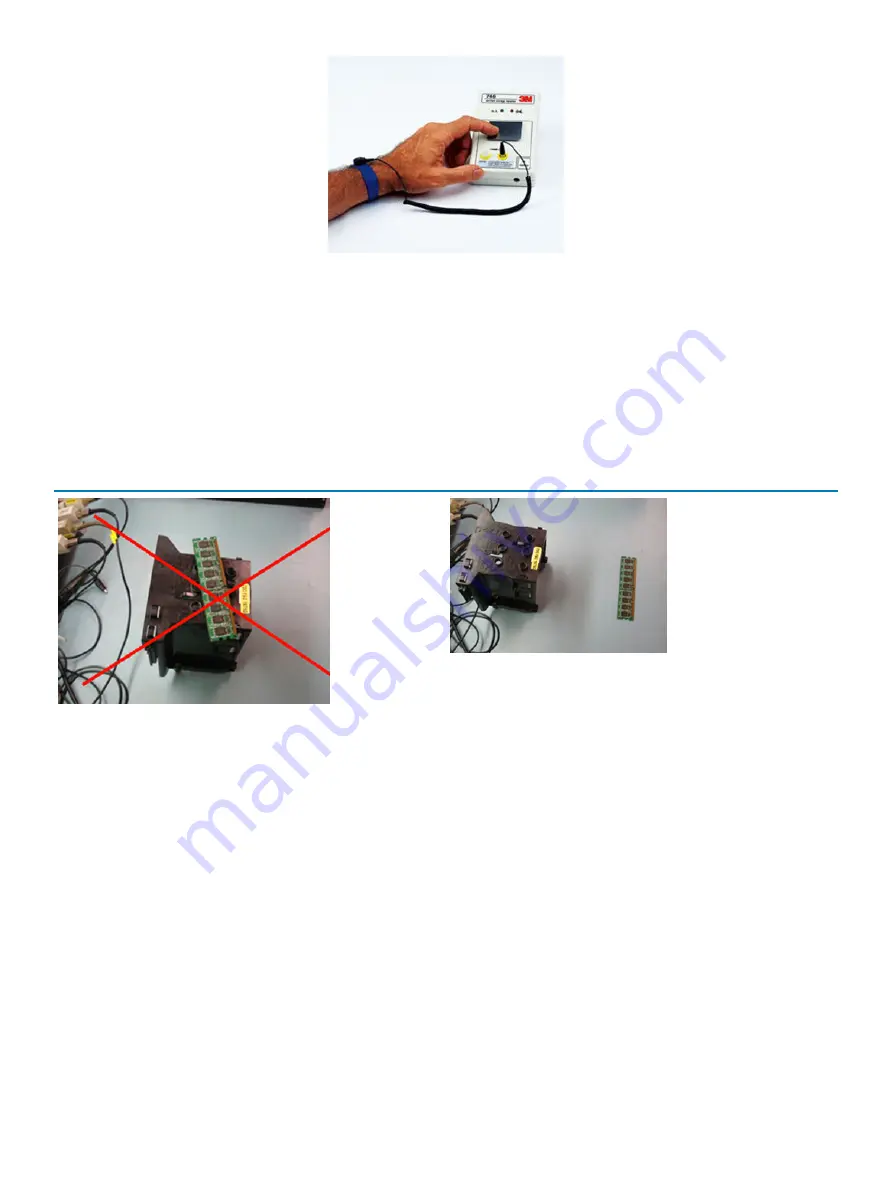
Figure 13. Wrist Strap Tester
Insulator Elements
It is critical to keep ESD sensitive devices, such as plastic heat sink casings, away from internal parts that are insulators and often highly
charged.
Table 55. Placement of Insulator Elements
Unacceptable — DIMM lying on an insulator part (plastic heat
sink shroud)
Acceptable — DIMM separated from the insulator part
Consider the Working Environment
Before deploying the ESD Field Service kit, assess the situation at the customer location. For example, deploying the kit for a server
environment is different than for a desktop or portable environment. Servers are typically installed in a rack within a data center; desktops
or portables are typically placed on office desks or cubicles.
Always look for a large open flat work area that is free of clutter and large enough to deploy the ESD kit with additional space to
accommodate the type of system that is being repaired. The workspace should also be free of insulators that can cause an ESD event. On
the work area, insulators such as Styrofoam and other plastics should always be moved at least 12 inches or 30 centimeters away from
sensitive parts before physically handling any hardware components.
ESD Packaging
All ESD-sensitive devices must be shipped and received in static-safe packaging. Metal, static-shielded bags are preferred. However, you
should always return the damaged part using the same ESD bag and packaging that the new part arrived in. The ESD bag should be folded
over and taped shut and all the same foam packing material should be used in the original box that the new part arrived in.
92
Removing and installing components
















































